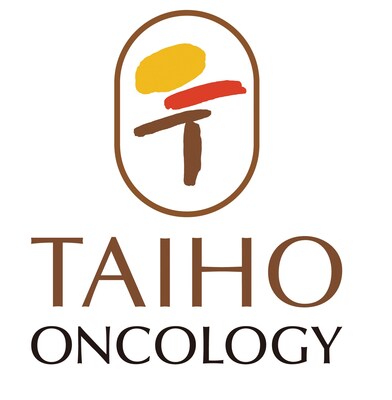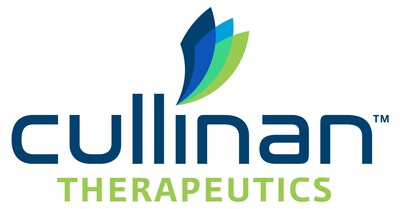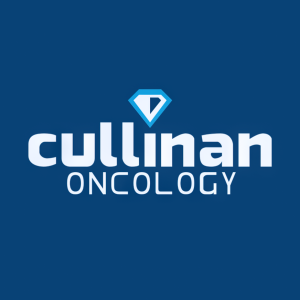Taiho Oncology and Cullinan Therapeutics Present Data on Zipalertinib in Patients with NSCLC with EGFR mutations and Active Brain Metastases at the ESMO Congress 2025
Rhea-AI Summary
Taiho Oncology and Cullinan Therapeutics (NASDAQ:CGEM) will present preliminary Phase 2b REZILIENT2 CNS cohort data for oral EGFR inhibitor zipalertinib at ESMO Congress on October 19, 2025 (mini oral, NSCLC metastatic session).
As of the Feb 2025 cutoff, 32 patients received zipalertinib 100 mg twice daily (median 2 prior therapies). In 16 RANO-BM evaluable patients with measurable CNS disease, intracranial ORR was 31.3% (including 1 CR), iDCR 68.8%, and median intracranial DOR 8.1 months. Systemic ORR measured in 29 patients was 27.6% with median DOR 7.6 months.
Safety at 100 mg BID showed treatment-related grade ≥3 AEs in 25% (8 patients); notable events included anemia (n=3), interstitial lung disease (n=2) and one death attributed to interstitial lung disease.
Positive
- Intracranial ORR 31.3% in RANO-BM evaluable patients (n=16)
- Intracranial disease control rate 68.8%
- Median intracranial DOR 8.1 months
- Systemic ORR 27.6% (measured in 29 patients)
Negative
- Treatment-related grade ≥3 AEs in 25% of patients (8/32)
- Two cases of interstitial lung disease and one fatal ILD event
- Small intracranial-evaluable population (RANO-BM n=16) limits precision
Insights
Zipalertinib shows intracranial responses in a heavily pretreated NSCLC cohort but includes a treatment‑related fatality; balanced benefit‑risk requires confirmation.
Zipalertinib, dosed at 100 mg twice daily, produced an intracranial objective response rate of
Safety signals are mixed: treatment‑related grade ≥3 adverse events occurred in
The mini oral presentation will highlight preliminary efficacy and safety data from the CNS involvement cohort of the ongoing parallel cohort Phase 2b REZILIENT2 trial of zipalertinib.1
Patients with locally advanced or metastatic NSCLC harboring EGFR ex20ins mutations represent a significant unmet medical need. An incidence of baseline brain metastases in EGFR ex20ins NSCLC patients ranging from
"Treatment options are limited for patients with NSCLC with EGFR mutations and active brain metastases," said Helena A. Yu, MD, Thoracic Medical Oncologist, Memorial Sloan Kettering Cancer. "We are pleased to see that in approximately one-third of patients exposed to zipalertinib, a decrease in CNS lesions was observed. These preliminary results suggest the potential for zipalertinib to treat these patients, warranting future investigation."
Authors will report results from the REZILIENT2 study of zipalertinib against active CNS metastases in patients with NSCLC harboring EGFR ex20ins or other uncommon mutations1:
Summary of Preliminary Efficacy - by Investigator
As of the February 2025 data cutoff, 32 patients were enrolled in the CNS involvement cohort of the ongoing parallel cohort Phase 2b REZILIENT2 trial and received zipalertinib 100 mg orally twice daily. Patients received a median of 2 prior lines of therapy, and of all patients enrolled, 21 patients had ex20ins mutations and 13 patients had other uncommon mutations.
As of the data cutoff, zipalertinib demonstrated:
- In the Response Assessment in Neuro-Oncology for Brain Metastases (RANO-BM) criteria evaluable population with measurable CNS disease (n=16, including 3 patients with leptomeningeal disease (LMD), intracranial objective response rate was
31.3% including 1 intracranial complete response. - In the same population, the intracranial disease control rate (iDCR) was
68.8% and the median intracranial duration of response (DOR) was 8.1 months. - Measured in 29 of the cohort's patients, preliminary systemic objective response rate (ORR) was
27.6% and median DOR was 7.6 months. - Intracranial antitumor activity was found to be similar to its overall systemic anticancer activity in this cohort of patients.
Summary of Preliminary Safety and Tolerability
Administered at 100 mg orally twice daily, zipalertinib was found to be well tolerated, with no new safety signals observed.
Treatment-related adverse events of grade 3 or higher occurred in 8 patients (
About REZILIENT2
REZILIENT2 is a Phase 2b clinical trial (NCT05967689), evaluating the safety and efficacy of zipalertinib in patients with locally advanced or metastatic NSCLC harboring ex20ins mutations or other uncommon/single or compound EGFR mutations. Patients are enrolled into one of four cohorts: Cohort A ("prior ex20ins treatment"), Cohort B ("first-line"), Cohort C ("active brain metastases"), and Cohort D ("other uncommon EGFR mutations"). Cohort C includes patients harboring EFGR ex20ins or other uncommon/single or compound EGFR mutations and CNS involvement. In this cohort, patients may or may not have had prior treatment for advanced disease. Patients are treated with oral zipalertinib 100 mg twice daily. The primary endpoint is ORR and confirmed per investigator-assessed Response Evaluation Criteria in Solid Tumors (RECIST) v1.1 and the secondary endpoints include DOR, DCR, PFS, OS, intracranial efficacy by RANO-BM criteria, PK and safety.
About Zipalertinib
Zipalertinib (development code: CLN-081/TAS6417) is an orally available small molecule designed to target activating mutations in EGFR. The molecule was selected because of its ability to inhibit EGFR variants with ex20ins mutations, while sparing wild-type EGFR. Zipalertinib is designed as a next generation, irreversible EGFR inhibitor for the treatment of a genetically defined subset of patients with non-small cell lung cancer. Zipalertinib has received Breakthrough Therapy Designation from the FDA. Zipalertinib is investigational and has not been approved by any health authority.
Zipalertinib is being developed by Taiho Oncology, Inc., its parent company, Taiho Pharmaceutical Co., Ltd., and in collaboration with Cullinan Therapeutics, Inc. in the
About Taiho Oncology, Inc.
The mission of Taiho Oncology, Inc. is to improve the lives of patients with cancer, their families and their caregivers. The company specializes in the development and commercialization of orally administered anti-cancer agents for various tumor types. Taiho Oncology has a robust pipeline of small-molecule clinical candidates targeting solid-tumor and hematological malignancies, with additional candidates in pre-clinical development. Taiho Oncology is a subsidiary of Taiho Pharmaceutical Co., Ltd. which is part of Otsuka Holdings Co., Ltd. Taiho Oncology is headquartered in
For more information, visit https://www.taihooncology.com/, and follow us on LinkedIn and X.
Taiho Oncology and the Taiho Oncology logo are registered trademarks of Taiho Pharmaceutical Co., Ltd.
About Cullinan Therapeutics
Cullinan Therapeutics, Inc. (Nasdaq: CGEM) is a biopharmaceutical company dedicated to creating new standards of care for patients. Cullinan has strategically built a diversified portfolio of clinical-stage assets that inhibit key drivers of disease or harness the immune system to eliminate diseased cells in both autoimmune diseases and cancer. Cullinan's portfolio encompasses a wide range of modalities, each with the potential to be best and/or first in class. Anchored in a deep understanding of oncology, immunology, and translational medicine, we create differentiated ideas, identify the most appropriate targets, and select the optimal modality to develop transformative therapeutics across a wide variety of autoimmune and cancer indications. We push conventional boundaries from candidate selection to differentiated therapeutic, applying rigorous go/no go criteria at each stage of development to fast-track only the most promising molecules to the clinic and, ultimately, commercialization. With deep scientific expertise, our teams exercise creativity and urgency to deliver on our promise to bring new therapeutic solutions to patients. Learn more about Cullinan at https://cullinantherapeutics.com/, and follow us on LinkedIn and X.
Forward Looking Statements
This press release contains forward-looking statements within the meaning of The Private Securities Litigation Reform Act of 1995. These forward-looking statements include, but are not limited to, express or implied statements regarding the company's beliefs and expectations regarding our plans regarding future data presentations, the clinical development and regulatory filing plan and timeline of zipalertinib, the safety and efficacy profile of zipalertinib and its potential to address unmet medical need, and other statements that are not historical facts. The words "believe," "continue," "could," "estimate," "expect," "intends," "may," "plan," "potential," "project," "pursue," "will," and similar expressions are intended to identify forward-looking statements, although not all forward-looking statements contain these identifying words.
Any forward-looking statements in this press release are based on management's current expectations and beliefs of future events and are subject to known and unknown risks and uncertainties that may cause our actual results, performance or achievements to be materially different from any future results, performance or achievements expressed or implied by the forward-looking statements. These risks include, but are not limited to, the following: uncertainty regarding the timing and results of regulatory submissions; the risk that any NDA or other regulatory submissions we may file with the United States Food and Drug Administration or other global regulatory agencies are not cleared on our expected timelines, or at all; the success of our clinical trials and preclinical studies; the risks related to our ability to protect and maintain our intellectual property position; the risks related to manufacturing, supply, and distribution of our product candidates; the risk that any one or more of our product candidates, including those that are co-developed, will not be successfully developed and commercialized; the risk that the results of preclinical studies or clinical studies will not be predictive of future results in connection with future studies; and the success of any collaboration, partnership, license or similar agreements. These and other important risks and uncertainties discussed in our filings with the Securities and Exchange Commission, including under the caption "Risk Factors" in our most recent Annual Report on Form 10-K and subsequent filings with the SEC, could cause actual results to differ materially from those indicated by the forward-looking statements made in this press release. While we may elect to update such forward-looking statements at some point in the future, we disclaim any obligation to do so, even if subsequent events cause our views to change, except to the extent required by law. These forward-looking statements should not be relied upon as representing our views as of any date subsequent to the date of this press release. Moreover, except as required by law, neither the company nor any other person assumes responsibility for the accuracy and completeness of the forward-looking statements included in this press release. Any forward-looking statement included in this press release speaks only as of the date on which it was made.
Contacts
Taiho Oncology
Leigh Labrie
(609) 664-9878
llabrie@taihooncology.com
Cullinan Therapeutics
Investors
Nick Smith
+1 401.241.3516
nsmith@cullinantx.com
Media
Rose Weldon
+1 215.801.7644
rweldon@cullinantx.com
References
- K. Ohashi et al. Activity of Zipalertinib Against Active Central Nervous System (CNS) Metastases in Patients With Non-Small Cell Lung Cancer (NSCLC) Harboring EGFR Exon 20 Insertion (Ex20ins)/Other Uncommon Mutations.
- Remon J. et al. EGFR exon 20 insertions in advanced non-small cell lung cancer: A new history begins. Cancer Treatment Review. Volume 90, November 2020, 102105.
![]() View original content to download multimedia:https://www.prnewswire.com/news-releases/taiho-oncology-and-cullinan-therapeutics-present-data-on-zipalertinib-in-patients-with-nsclc-with-egfr-mutations-and-active-brain-metastases-at-the-esmo-congress-2025-302581514.html
View original content to download multimedia:https://www.prnewswire.com/news-releases/taiho-oncology-and-cullinan-therapeutics-present-data-on-zipalertinib-in-patients-with-nsclc-with-egfr-mutations-and-active-brain-metastases-at-the-esmo-congress-2025-302581514.html
SOURCE Taiho Oncology










